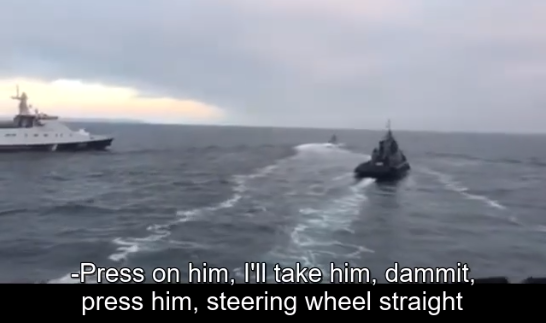Adolf Hitler reportedly was confident he’d get away with killing the Jews because “no one talks about the Armenians anymore.” Tragically, Vladimir Putin now is even more confident he’ll get away with his “hyphenated” genocide of the Crimean Tatars because few are willing even to raise the issue of his Anschluss of the Ukrainian peninsula and his continuing attacks on the Crimean Tatar nation.
The reason for Putin’s confidence is obvious: when Western leaders do talk about Crimea and the Crimean Tatars – and they do so ever more rarely -- they make declarations that even they know they will not maintain: they’ve said they won’t end sanctions on Moscow until Russia returns Crimea to Ukraine. But pressed by their own businesses and believing they “need” Moscow for other tasks, they will eventually lift those sanctions regardless of what Russia does.
Indeed, the Kremlin leader clearly views the recent embarrassing visits of German, French, and American leaders to him not as an indication that he must change course but rather as confirmation that what he has been doing in Crimea and Ukraine more generally is working. Thus, he sees no reason not to continue the policies that he has pursued up to now.
On this the 71st anniversary of Stalin’s deportation of nearly a quarter of a million Crimean Tatars, an action that led to the deaths of more than 100,000 and clearly constitutes an act of genocide, and at a time when Putin’s own actions are extending that crime against humanity, it is time to think about what to do next and how we might get there.
On this date, which the Russian occupation authorities are doing everything they can to play down, we all are or should be Crimean Tatars, as the Crimean Institute for Strategic Studies entitled a new video, lest we betray our values and fall into the trap that Pastor Niemoeller described so elegantly long ago.
There is an obvious and relatively easy way out, but it is one that no Western leader yet has had the vision or courage to pursue: the adoption of a non-recognition policy regarding Russia’s illegal annexation of Crimea and its continuing and even expanding repression of the peoples of that Ukrainian land, first and foremost the Crimean Tatars.
The model for what Western countries can and should do for Crimea is what the United States did in 1940 in response to Stalin’s occupation of the three Baltic countries: a declaration based on the 1932 Stimson Doctrine that the US would never recognize changes in borders achieved by force alone and that worked effectively for more than 50 years.
Why was it effective? Because it was tightly drawn, put in place for the long term, and did not preclude an evolution in relations between Washington and Moscow on other issues. The US and the USSR could and did sign agreements on other issues, but despite that, the US did not do away with its non-recognition policy – and many other Western countries followed its lead.
That policy meant that the US maintained relations with the diplomats who represented the pre-occupation governments, did not allow senior US officials to visit the occupied countries, and required that all maps issued by the US government specify that Soviet claims to Estonia, Latvia, and Lithuania were not recognized as legitimate by Washington.
And further it meant that ultimately the three Baltic peoples were encouraged to seek the end of the occupation and the recovery of their rightful independence, a process that took half a century – far longer than the apparent time horizons of current Western leaders – but one that meant that Estonia, Latvia and Lithuania are now again full members of the Western community.
Can the West be persuaded to live up to its principles with regard to Crimea and the Crimean Tatars? In the current environment, that is a far harder task. But the Crimean Institute for Strategic Studies has shown the way in a film clip posted on Youtube in advance of this sad anniversary.
Building on the “I am Charlie” movement that emerged following the vicious Islamist attacks on a French satirical journal, the Crimean Institute has suggested that today “we are all Crimean Tatars” or at least must be if we are to avoid the trap Pastor Niemoeller described so elegantly so long ago.
Today, Putin is coming for the Crimean Tatars and the Ukrainians. Tomorrow, if no one says anything, he will come for others and ultimately for us. Speaking out against his crimes against humanity and crimes against the international system is thus in our own self-interest as well as that of ordinary morality. A non-recognition policy must be part of that effort.




